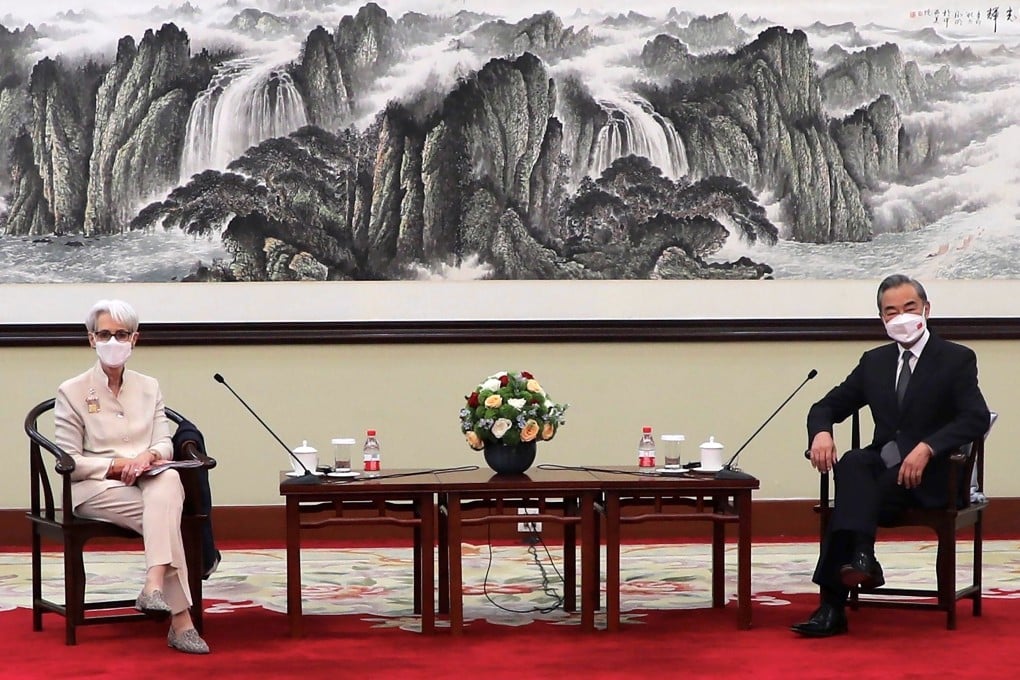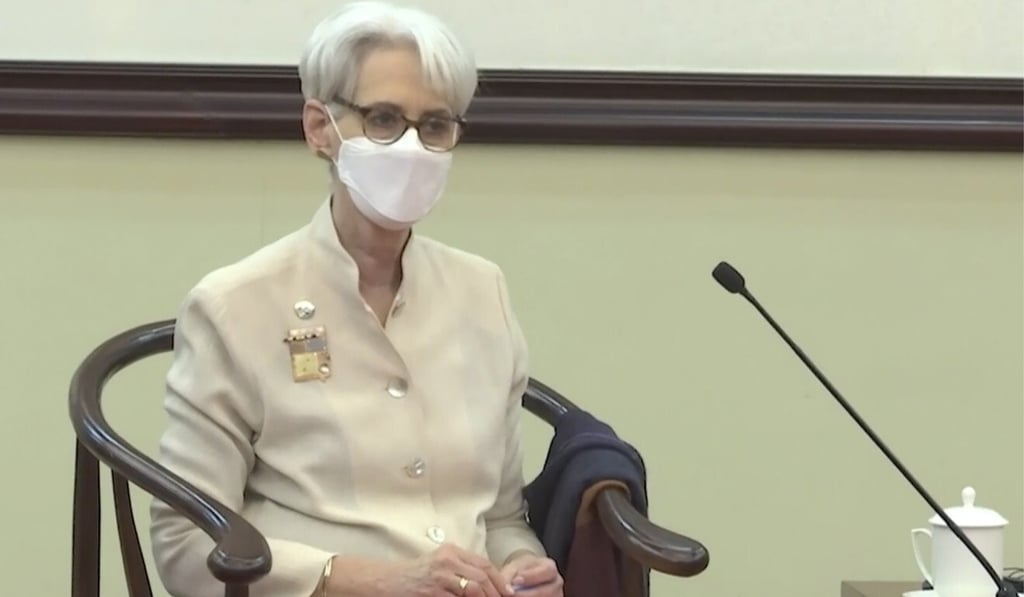Advertisement
China, US draw lines in the sand at top-level meeting but agree to keep talking
- Both sides stick to their firm positions during Wendy Sherman’s stop in Tianjin but China says talks were candid and useful
- Sherman says US vows stiff competition but not conflict with China
4-MIN READ4-MIN
99+

In rare high-level talks on Monday, Chinese and American officials laid out each of their grievances in the northern Chinese city of Tianjin but agreed on the need to keep talking.
US deputy secretary of state Wendy Sherman’s much-anticipated visit to China for talks with Foreign Minister Wang Yi and vice-foreign minister Xie Feng ended with both sides sticking to their hardline positions on the divisive issues of Xinjiang, Hong Kong, Taiwan as well as the South and East China seas.
For the first time, China handed the United States a list of grievances and a list of red line issues, demanding the US take remedial action to repair their damaged relations. The diplomats also left room for future talks, with both sides stressing the importance of maintaining open lines of communication, but White House press secretary Jen Psaki said the topic of a possible meeting between their top leaders did not come up.
Advertisement
China said the talks were candid and useful while the US said they discussed “ways to set terms for responsible management of the US-China relationship”.

Advertisement
“The deputy secretary and State Councillor Wang had a frank and open discussion about a range of issues, demonstrating the importance of maintaining open lines of communication between our two countries,” US State Department spokesman Ned Price said after the meetings.
Price said that in her meeting with Wang, Sherman vowed “stiff competition” with China but also stressed that the US “[did] not seek conflict” with Beijing.
Advertisement
Select Voice
Select Speed
1.00x